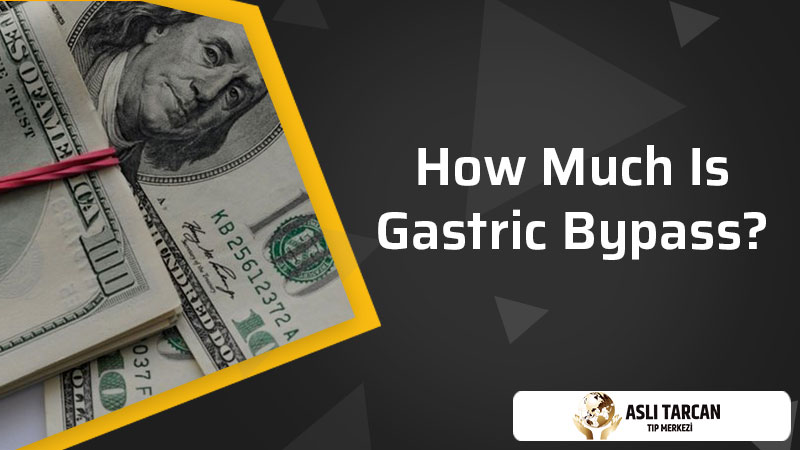How Much Is Gastric Bypass? Obesity is the second most common cause of preventable deaths after smoking in the world today. Obesity disease; hypertension, heart disease, type 2 diabetes, etc. It plays a role in the pathophysiology of many metabolic diseases. The obesity rate in the world has almost tripled since 1972.
This causes unhealthy generations to grow up. According to the World Health Organization (WHO), it will increase the risk of obesity, mortality, and morbidity, the excess fat mass that can affect our physical, psychological or social life defines as. It is derived from the Latin word “obesus” which means well-fed. Obesity is determined by dividing body weight by height square (kg / m2) in clinical practice. It is evaluated using the calculated body mass index (BMI). BMI over 30 kg / m2 Individuals with obesity between 25-30 kg / m2 is called overweight. Fortunately, obesity is a preventable and treatable disease. Gastric bypass is the leading treatment for obesity
How Is Gastric Bypass Surgery Performed?
A behavioral therapy plan that combines diet and exercise can ensure that they can lose up to 10% of their body weight, but most patients cannot maintain this loss in the long term and begin to regain the weight. For this reason, a surgical application may be required during the treatment process. In the simplest terms, Gastric bypass surgery allows the stomach to be reduced. It is made by an expert team with the help of qualified materials. The important thing here is that hygiene and quality materials are also an expert surgeon. With this surgery, the stomach is reduced, and additionally, the small intestine is connected to the smaller stomach. As a result of this procedure, the patient eats less, thanks to the shrinking stomach, and the absorption of nutrients decreases as the small intestine connects to the stomach. In this way, the patient metabolizes less than he eats. Thus, weight loss is achieved by significantly reducing calorie intake.
What happens after the surgery?
If you have had laparoscopic gastric bypass surgery, you will need to stay in the hospital for 2-3 days. If your surgery is an open surgery, recovery and hospital stay may be longer. The incision site will be very painful on the first day after the operation. In the hospital, this condition is easily treated with medication. You will be asked to get up and walk after the operation. This helps remove air used to expand the process abdomen and create space for work. You may be asked to walk on the hospital floor at least 3 times a day after the operation
- You may have a catheter passing through your stomach for 1 to 2 days. This catheter helps drain fluid from the intestines.
- You may have a catheter in your bladder to remove urine.
- You will not be able to eat for the first 1-3 days. After that, you can eat liquid and then eat crushed or soft foods.
- You will wear special socks for your legs to prevent blood clotting.
- You will receive drug injections to prevent blood clotting.
- You will receive pain relievers.
- You can eat liquid or pureed food.
- You can take walks without straining yourself.
Risks of gastric bypass surgery
The most important rule of these surgeries is to be performed for diseases with a body mass index over 35. The right patient should be selected for gastric reduction surgery. As with all surgical operations, it is crucial to choose a hospital and specialist who has all the necessary knowledge, experience, equipment, and surgical nursing knowledge. It is possible to minimize the risk of stomach reduction surgery under the control of specialists in a fully equipped hospital
Every operation has a risk ratio. However, laparoscopic surgery can be considered in low and medium-risk groups. Considering world data, the complication rate is about 1%, so it is very low. Two types of risks can be calculated; Bleeding and leakage. However, if diagnosed in time, this is a treatable process. Despite the low incidence, other complications that can be considered are embolism, respiratory diseases, and organ damage.
It can help patients lose 65-80% of their body weight within 18-24 months after surgery.
Post-operative nutrition
After the surgery, a 1-year diet program is written to the patient. Since the patient will take fewer calories than before the operation, the nutritional value of the meal should be high. Consumption of unhealthy foods such as fatty, sugary foods, high-calorie drinks prevents weight loss. The patient consumes low carbohydrate and high protein products. It is fed in liquid and puree form after surgery. Then the nutrition program is gradually changed.
On the second day of the operation, you will start taking liquid food after the leak test. After the first two weeks of liquid feeding, you will receive soft (thinly sauced) foods for two weeks. You will stay in touch with our nutritionists throughout the process. Our hospital and expert dieticians will take care of you in every aspect.
HOW MUCH IS GASTRIC BYPASS?
Gastric Bypass surgery should be done by a specialist team. There are several very important issues at this point. The quality of the materials used is very important. These surgeries are performed in many places in the market, and there are different kinds of materials. The materials of the two leading American companies are the highest quality products currently on the market and used worldwide. However, their cost is much higher than Chinese products used for the same purpose. Moreover, safety is important to health, not cost. The operating room and hospital where the operation is performed must have certain equipment and standards. All branches need a sufficient number of intensive care beds and full-time doctors. Everything from the operating table to the hospital bed should be suitable for obese patients. Therefore, this procedure is not recommended to be done in every hospital. Gastric bypass is not limited to surgery. It should have a support team available 24/7, including a specialist nutrition team.
Our clinic is prepared in the best way for you and provides service with the highest quality materials and an expert team.
You can get detailed information about the price by contacting our clinic. You can get detailed information from our contact number.
What is Gastric Bypass Surgery? Things to Know

So, you’re wondering, “what is gastric bypass surgery?.” Here is the answer for you! Gastric bypass surgery refers to a weight loss procedure where the stomach is divided into a small upper pouch and a much larger lower “remnant” pouch. Once the procedure is done, the small intestine is rearranged to connect them. This type of medical treatment is used to help you lose weight by changing how your stomach handles the food you eat. It falls into the same category as gastric balloon surgery. Instead of placing a balloon in your stomach, the surgeon changes how the entire organ functions. As with these types of surgeries, you will need to undergo a gastric balloon pre-op diet before the surgery can take place.
After the surgery, your stomach will be smaller. You will feel full after eating less food. This surgery takes a few hours and may require you to stay at the hospital or clinic for a night to recover. It is a very safe procedure; if you work with an experienced surgeon, you have nothing to be afraid. You can read about patients’ reviews

of the process by reading gastric balloon stories. Contact a clinic to learn more about “what is gastric bypass surgery?”.




